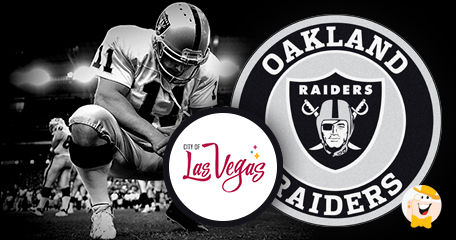
Starting in 2020 (expected) the Vegas Golden Knights (NHL) will not be the only major professional sports team in the State of Nevada. Recently, NFL owners met and voted upon the matter of the Oakland Raiders relocating to Las Vegas pursuant to a deal for stadium financing worked out between owner Mark Davis, Bank of America and the State of Nevada itself. In a 31-1 vote, (with only Miami Dolphins ownership dissenting) the move of the Oakland Raiders to, “Sin City,” was overwhelmingly approved.
Despite several attempts, no deal to the liking of Mark Davis for a new stadium was enough to keep the team in Oakland. At one time, it was thought that the Raiders might have returned to their former home in Los Angeles, but that eventually stopped being an option as the San Diego Chargers have decided to relocate there. The Oakland Raiders had second rights to relocate there (which the former St. Louis Rams did just last year) provided the Bolts did not exercise their option.
There was also talk of a joint stadium venture between the Bolts and the Silver & Black, but that again did not end up happening as a result of the Bolts’ decision to relocate to Los Angeles with their NFC counterparts.
This is quite a development for the Silver State who now enjoys the presence of the Black and Silver as well as some Golden Knights. While this will spur on increased tourism, particularly during a season which is not the busiest for LV, it does come at a significant public cost.
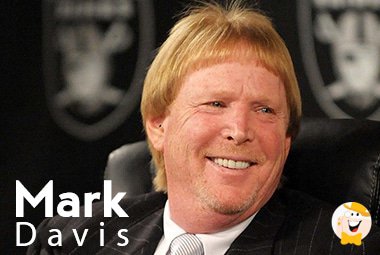
Apparently, $750,000,000 in tax dollars is going to go to help finance the new stadium as well as potentially another $200,000,000 to develop the infrastructure around the area in which this new stadium will sit. While that may seem like it will be eventually made up for in the form of taxation, that is unlikely to be the case.
The Public Cost:
It should be mentioned that professional sports stadiums have an extremely finite shelf life until such time as the team occupying it demands a new stadium or significant improvements. Occasionally, team owners (viewing themselves as aiding the city in question, overall) will refuse to pay the costs for these developments themselves and will demand that their projects be subsidized by the taxpayers of the state and/or city. It is for precisely that reason that Raider Nation is relocating its capital from Oakland to LV in the first place. Mark Davis couldn’t secure enough public funds for his would-be stadium project in Oakland, so he picked up and left town.
The first thing that should be mentioned is that Davis should not be blamed for taking the deal as it was a no-brainer from a business standpoint. You have financing from Bank of America covering most of what the promised 950 million dollars in public funds doesn’t with the result being that Davis is only financing about 25% of the stadium’s costs. Alternatively, in Oakland he was going to get some free land, a very modest amount of infrastructure funding and a promise from the city not to stand in his way (as much as usual). The ultimate result is going to be a brand new stadium in a thriving tourist market that is going to exponentially increase the value of the team compared to sharing an all-purpose stadium built in the 60’s with a baseball team.
There is no question that Davis is getting a good deal, but can the same be said for the public?
Nope.
Jeffrey Dorfman of Forbes discusses the economic impact of a tourist coming to an area for an NFL game.
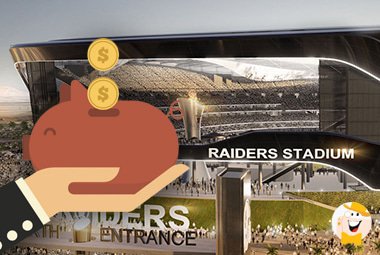
The short conclusion of his reasoning is that even if a tourist spends an average of $3,000 (optimistic, and includes travel), then the jurisdiction in question may see some $300 in tax revenues. The Raiders’ new stadium is expected to seat some 65,000 attendants, so if we look at this:
950,000,000/65000/300 = 48.718
If we assume that the stadium sells out every single game, and that the tax contribution from every single attendant of the game is $300, then it would require 48.718 games for the public funds to have been made back in tax revenues. Based on eight guaranteed games per season, the worst-case scenario is that it would take a little over six seasons for that to happen.
Unfortunately, there are a couple of caveats:
1.) The Average Tax Revenue Will (Probably) Not Be That High
The $300 for average tax revenue assumes a lot about the clientele. The first thing that assumes is a flight, (though that doesn’t contribute much in hotel revenues) but it also assumes some food costs and hotel stays. Obviously, the ‘Home fans,’ who can simply drive to the game are likely not going to incur any hotel costs and only minimal restaurant costs compared to individuals staying in Vegas one or more nights.
Therefore, it can be inferred that the majority of fans will not be spending $3,000 (or so) on the mere act of attending the game and staying in the area. It should also be mentioned that these numbers reflect a complete sellout with every ticket to the game being purchased as opposed to given away as some sort of promotion, or for some other reason. While most of the tickets to the game will certainly be sold, it is tough to say how many individuals in a city largely consisting of transient residents (read: from somewhere else) will take to the team.
It is difficult to say what the home/away distribution of fans will be, but ironically, it is going to be much better for LV to have more fans than not coming from out of town.

2.) These Revenues Might Just Be Redistribution:
The tax revenues that stem from the presence of the Raiders in Las Vegas may not all come as a direct result of the team being in town, but, in fact, may simply be a redistribution.
The first possible redistribution is that of an individual who would make one (or more) annual pilgrimages to LV anyway, but who instead schedules his trip around when his favorite team plays the Raiders. In this case, the same visitor will be making the same number of visits to Vegas that year, but instead of having a greater budget for restaurants, gambling or other activities, he is spending some of it on the game.
With visitors that are not going to go to Vegas more frequently as a result, but will simply change when they go to Vegas, it is quite possible that the State of Nevada will make less tax revenue off of them as opposed to more. For example, there is an effective tax rate of about 7.75% on all gambling revenues, so if a tourist decreases his gambling budget in favor of seeing a game, then the taxes levied on the game will need to be the same or more just to hold the revenue.
Another form of redistribution is that of individuals who live in the area and may attend the games. When it comes to the ‘Home fans,’ it should be considered that if they were not spending their money on attending the games, then they would likely be spending their entertainment budget money on something else. Generally speaking, given a finite income, there is only a finite amount an individual or family can spend on entertainment and that amount will generally be spent regardless of what the available entertainment is.
In other words, if they did not have the opportunity to, ‘Blow,’ money going to the games, then they would be blowing that same money doing something else.
Imagine if an individual spends $500 that would normally be lost gambling on going to a Raiders game and that individual lives in Nevada. Given the effective tax rate on gambling revenues, the total that goes to the state of that $500 is going to be about $38.75. In comparison, the total that would go to the state of spending the $500 on a ticket, if we assume an effective tax rate of 15%, is going to be $75. While it is technically true that more of the $500 is going to the state in the latter case, that still reflects only a tax gain of $36.25...a far cry from $300.
With that, if we want to assume a very generous split of 50/50 between home fans and/or fans who would be in Vegas anyway compared to fans who wouldn’t otherwise be there, let’s see what happens assuming $300 v. $75.
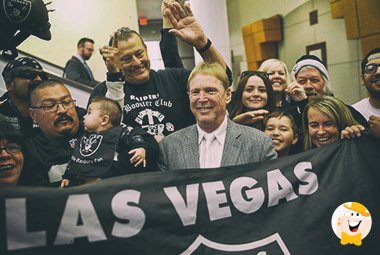
(32500 * 75) + (32500 * 300) = $12,187,500 (Added Tax revenue per game)
In this case, it would take closer to seventy-eight games (77.949) to realize the amount of added tax revenue needed for the public to, ‘Break even,’ on the stadium financing. As a worst case scenario, it would require ten NFL seasons for that to happen. At that point, of course, the stadium might require some renovations and it remains to be seen where those funds would come from.
3.) It Still Doesn’t Balance Out
Even though we can look at the initial costs of this stadium financing and determine that it would take about ten NFL seasons for the taxpayer to break even, with some extremely liberal assumptions as to added value, that still doesn’t tell the full story.
The problem is that the amounts in question only speak to initial tax costs as opposed to the ongoing tax costs. The municipality/state will have to provide increased police protection and security in order to ensure the safety of the fans. EMT units will have to be at the ready in case anything happens. There is the possibility that the games themselves will bring increased crime, which again, will increase public safety costs.
The traffic around the venue of the game will result in greater infrastructure costs as relates public roads given the simple fact that the roads are being used more frequently. In addition to that, there are going to be greater instances of heavy traffic on the roads around and leading to the stadium during game times.
While there will be some job creation, many of the jobs are low-paying which results in some sort of state subsidies and/or entitlements going towards those employees, in many cases. While one might argue that these can be offset by the high income earners working for the team, (assuming they choose to live in Nevada, which many of them will not) the argument is presently moot because the State of Nevada has no personal income tax. In other words, tax monies might be spent directly to benefit these employees, but there will be no direct returns by way of the employees who make more money paying into the general fund of Nevada.
The stadium financing also does nothing to guarantee that ownership does not hold the state up in the future with a threat of moving elsewhere if additional improvements and/or renovations are later requested by the team. In other words, the team might demand even more public funding to remain in Las Vegas before the State of Nevada has even recouped its initial costs.
4.) Vegas Is Not Like Any Other City:
There are a number of obvious differences between Vegas and other cities, with the biggest one being that Vegas is known as the gambling mecca of the world. While that may not seem like a big deal, in terms of tax revenues, it is important to remember that Vegas is also the home of comps.
The fact of the matter is, in most NFL cities, there is little to no reason for a hotel to want to comp a guest or for a restaurant to provide a guest with free food. The result of that is that the tax expectations that come by way of analyzing average visitor spend are (rightfully) based on an, ‘Average,’ visitor spending a certain amount of money.
In Vegas, this is totally different. When a casino is operating as a casino, (as well as hotel and restaurants), then the casino is still going to have the incentive to comp RFB to its visitors and strong players. Many of these individuals will not even necessarily be visiting the town for NFL games, and even though the games may drive room rates up for those who are not there to gamble, the raw financial impact may not be as great as it is on other towns.
Furthermore, in terms of square miles around the stadium, Las Vegas actually has several more rooms per visitor (relative to the fans only) than most cities have. What that means is that, despite the fact that we are talking about LV, the demand ceiling (price) is probably not going to be as high as it would in other NFL cities. Visitors to Las Vegas are going to be slightly less of a captive market due to the fundamentally huge number of rooms that are available relative to the number of visitors.
Compare the 62,000 (roughly) rooms in Las Vegas, Nevada with the roughly 24,000 to be found in the Pittsburgh, PA area. Despite the fact that fewer rooms are available in the Pittsburgh market, Heinz Field has a greater capacity (by a few thousand) than the Raiders new projected stadium will have.
In other words, a game at Heinz Field will generally draw more out of town visitors (who would not be there anyway) than one would expect a Raiders game to draw. The main difference is that almost none of these out-of-towners to Pittsburgh are going to be getting comped rooms, food or anything else. The hotels and restaurants in Pittsburgh are mostly not related to a casino in any way, and as such, they have to exist profitably based on their operations in those capacities only. On the other hand, a Las Vegas casino can theoretically lose money on hotel operations, but make it back in other venues.
The point is that nobody knows what precise metric certain Vegas casinos are going to use to determine what gambling level qualifies for hotels and food in terms of ADT. However, it is important to remember that Vegas casinos, to some extent, base what they are willing to comp to players on the actual cost to deliver the comp. In other words, it is possible for a player’s ADT to not equal or exceed (from a standpoint of tax revenue) what the player would be spending if the player had to pay for everything outright.
Here’s an example: Let’s say that a player has an ADT of $1,000 of which the state would expect to see 7.75% effective tax revenue ($77.50), the player’s ADT then has a value of $77.50 to the state. However, let’s say that the casino comps the player a hotel room that would have been $250 (at a 12% tax rate) and $300 in food (at a 8.15% tax rate) which reduces the player’s ADT to $450.
($250 * .12) + (300 * .0815) + ($450 * .0775) = $89.325
In other words, on the same $1,000, the State of Nevada would do somewhat better (+15.26% in revenue) if the player was paying cash for that stuff rather than it being comped and the player having a greater ADT accordingly. That also assumes that the player’s ADT actually increases according to the comp value. As it turns out, the money that the player does not have to spend on rooms/food may not have a directly proportional impact on his gambling habits.
Not a Good Gamble:
The simple fact of the matter is that there is nothing that guarantees a positive investment for the taxpayers of the State of Nevada. While the presence of the Raiders in the state will undoubtedly draw some sort of revenue, which translates into tax revenue, it is impossible to say how much of it comes from redistribution. In other words, not all of the revenue coming into the state as a result of the presence of the team, even when it comes to people going to the games, will be new revenue. In fact, most of the revenue likely will not.
Furthermore, when it comes to the, ‘Average spend,’ per fan, it is important to remember that Las Vegas is just fundamentally different from other cities. While many people may spend some money gambling that they would not otherwise have done, the fact of the matter is that the presence of NFL teams undoubtedly does increase overall sales tax receipts in most other cities whereas, in Las Vegas, it may not even matter that much.
Furthermore, Las Vegas is already a huge tourist town and is built accordingly. The sheer number of available hotel rooms may prevent room prices from rising quite as high as they would in other towns for those who wish to attend NFL games. There may simply not be the, ‘Captive Market,’ factor that exists in other towns.
The stadium financing, to appropriately put it in gambling terms, is a negative expectation bet for the State of Nevada in pure dollars and cents. However, there are those other than the state itself that will benefit from the Raiders move, so we will take a look at those who benefit:
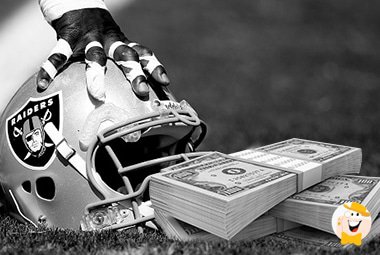
1.) The Raiders/Mark Davis
This should go without saying, but The Raiders undeniably benefit from moving from a small NFL market with a crumbling stadium shared with a baseball team to a new market in which a 1.9 billion dollar stadium is largely financed by them. Additionally, they also enjoy the benefit of roughly half of that overall financing coming to them for free on behalf of the State of Nevada.
Even if, ‘Raiders Nation,’ is not quite as passionate and the Las Vegas Raiders do not find themselves selling out every game or drawing the same TV audience, the team essentially cannot lose. The fact of the matter is, the majority of most NFL teams revenues comes from the NFL’s revenue sharing on national TV contracts.
For example, for the year of 2014-2015, every NFL team started with 226.4 million dollars prior to even generating a single penny in revenue of their own accord.
In other words, for the Raiders not to make money with a stadium half-financed from the public, not only would they have to fail to generate any meaningful revenue, they would actually have to lose serious money on a year-over-year basis. Even if the shared revenue fell (it won’t, it continues to climb) it is going to come close to meeting expenses on its own.
In other words, the Raiders cannot lose. In fact, the Raiders were not even losing with the status quo as it was remaining in Oakland. The only question is: How could the Raiders maximize their winnings? In the mind of Mark Davis, the answer was, ‘By moving to Vegas,’ and he’s probably right.
2.) Individual Businesses
This is where the tax situation gets a bit dicey and where we have to discuss whether the tax dollars lead to a greater public good. The fact of the matter is that the individual hotels, casinos, restaurants and several other businesses in Vegas should fare a little better with the Raiders in town.
While most businesses of any size in Vegas perform profitably by virtue of the sheer tourist dollars being constantly pumped into the area, the Raiders coming to town will boost those expectations for a few reasons.
The first reason that individual businesses stand to perform well as a result of the Raiders coming to town is that the team will draw some tourists that would not have otherwise went to Vegas. It should be remembered that Sundays are generally not the busiest days of the week in Las Vegas with scores of people leaving town to get back to their responsibilities at home. Having the NFL in town will change that to some extent and people who would otherwise be there, but want to see a game, might extent their visit by an extra day.
While we talked about mere redistribution of revenues in the cons, not all of the revenues brought into the city will come by way of redistribution. The only way that is not true is if 100% of the people who come to Vegas to see the Raiders would not have done so anyway. While it is difficult to put an exact number on the number of new people (and the amount of new money) that the Raiders will draw, it can be assumed that the amount is greater than $0.
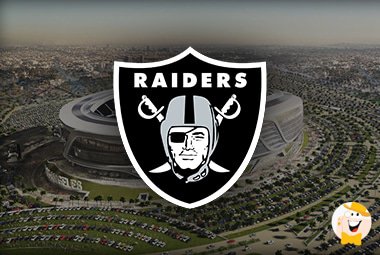
Furthermore, much of the NFL Season is played during a time of year that does not represent Las Vegas’ busiest time. The week prior to Christmas is called, “Dead Week,” for a reason. “Dead Week,” might not be so dead anymore considering that there will likely be a Raiders home game played every other year.
For those out-of-towners who have not been to Vegas on a Sunday during, “Dead Week,” it is almost surreal. There are virtually no lines regardless of where you go. Some of the casinos Downtown will have bars that are 100% empty during the evening hours. Many of the table games will be 100% empty not too particularly late at night. Some of the casinos can be described as, “Quiet.”
For those who don’t believe me, consider the fact that many Las Vegas shows take the entire week off merely because they know they aren’t going to draw. Casinos are even more generous with comping to low-rollers and not-well-known players (even casinos who already have such a reputation) because it is either them or nobody.
The fact of the matter is that the presence of the Raiders playing at home would change all of that dramatically for that one week and should somewhat boost business in other weeks. Again, much of that is going to be redistributed revenue simply, but not all of it.
Furthermore, the Raiders can be expected to draw some visitors to Las Vegas who would not otherwise be interested in gambling. Bringing such people to town is a HUGE positive for the city because it represents a market subset that would otherwise be extremely unlikely to visit the city. Additionally, visitors who don’t gamble will be far more likely to be paying cash money for rooms, food and drinks, and all of these things will bring in substantial tax revenues. More than that, though, they help the businesses.
3.) (Some Of) The Citizens
The presence of the Raiders and building of the stadium is going to undoubtedly help many of the citizens of Las Vegas. The immediate effect will be some temporary high-paying construction jobs that will be necessary to build the stadium. In addition, the stadium (and other projects) are going to have to wage-compete to draw the workers which can mean increased wages for construction workers who would be there anyway as well as those who travel to the area.
In addition to that, any influx of service-level jobs will have a tendency to be good for employees and will tend to drive wages up a little bit. The fact of the matter is that more competition in the workforce on the demand (business) side is going to drive up wages and benefits somewhat.
According to the Las Vegas Review-Journal.
The unemployment rate for the State of Nevada hit a nine year low as of January 2017, but at 5.1%, there are still a not insubstantial number of workers without jobs. Many of these workers may find themselves relocating to the metropolitan area to take advantage of some of the construction and service opportunities that will come about as a result of this development.
In addition, more busy days in the area result in more potential hours to be allocated among existing workers as well as the potential need for new workers in existent businesses. That would mean a potential increase in total available working hours, as well as potentially more positions, even outside of the stadium walls.
We even mentioned earlier how increased EMT and public safety presence would be required as a result of the games, but as everyone knows, there are people who get paid for doing that! As with the service-related businesses in the area, even the public service sector is going to see the need for increased man hours, and perhaps, maybe even the need for entirely new positions.
Regarding overall employment in the area, there is virtually no way this will be a net negative which means, even more, benefits for:
4.) People Already Living There
Disregarding the pain in the ass that the additional traffic around the stadium might cause some people, the fact is that current residents of Las Vegas might benefit from the Raiders coming to town.
We have already discussed the new jobs that the team will definitely bring to the area, as well as those that will potentially come into the area, but other individuals from town will benefit, as well. For one thing, the presence of more jobs with some of those being good-paying jobs (think players who want to live close to the stadium, their families, or other well-paid team officials) will result in a demand on the real estate side of things. The result of the sheer increase of people who will be coming to town to work is that there will be increased demand for housing.
The increased demand for housing will be beneficial to landlords and, perhaps, to current property owners alike. The landlords, obviously, base their rents on demand which could be presumed to go up. Current property owners might decide to sell and will likely get a better price than they otherwise would have.
Of course, current residents who have no intent to sell might see negative consequences when the assessor comes around and determines the property is worth more than it was. These individuals will be paying more in property taxes, though it can be argued that the tax increase in that regard is at least beneficial to the counties.
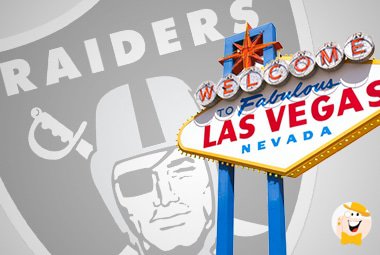
Either way, for several landowners, this development will have a positive impact. This is especially true of both landlords and landowners who may wish to sell.
Conclusion:
While not necessarily a positive for Nevada taxpayers overall, there are undoubtedly a number of individuals and businesses who will benefit from the Raiders moving to Las Vegas. It could be argued that the people who are most harmed by the development are the unfortunate Nevada taxpayers who meet the following criteria:
A.) Live Outside of Vegas
B.) Do Not Care About the NFL
C.) Will Not Move or Travel to Vegas for Work
Those people are getting completely shafted, which is precisely why the State of Nevada would avoid putting this matter on the ballot: There is a very real chance that it would not pass.
It is extremely unlikely that Nevada will ever recoup the public dollars going into this project, but there can be no question that several entities will benefit as described above. In the meantime, this relocation will have a very real cost to some Nevada residents, namely those who will see no benefits as a result of the relocation but might have enjoyed the benefit of public dollars being spent within their jurisdictions. The tax dollars being spent on this project do not represent those taxpayers in anyway whatsoever and are being reallocated in a fashion that arguably could be constitutionally unfair.
Just like a week in the NFL, there are winners and there are losers.






Mission146 7 years ago
7 years ago
I think football will certainly bring some people there, but I think it would be mostly people who would be visiting Vegas anyway just switching their vacation dates. Thanks for the comment, Rose!
Please enter your comment.
Your comment is added.
rferry5 7 years ago
7 years ago
what a waste of money All the shows and stars that perform there and many casinos are what brings people to vegas . why else would they go to there? I know for sure it would not be football that would bring me to vegas it would be all of the great shows and fabulous casinos that they have available for people like me...
what a waste of money All the shows and stars that perform there and many casinos are what brings people to vegas . why else would they go to there? I know for sure it would not be football that would bring me to vegas it would be all of the great shows and fabulous casinos that they have available for people like me thanks rose
Show morePlease enter your comment.
Your comment is added.